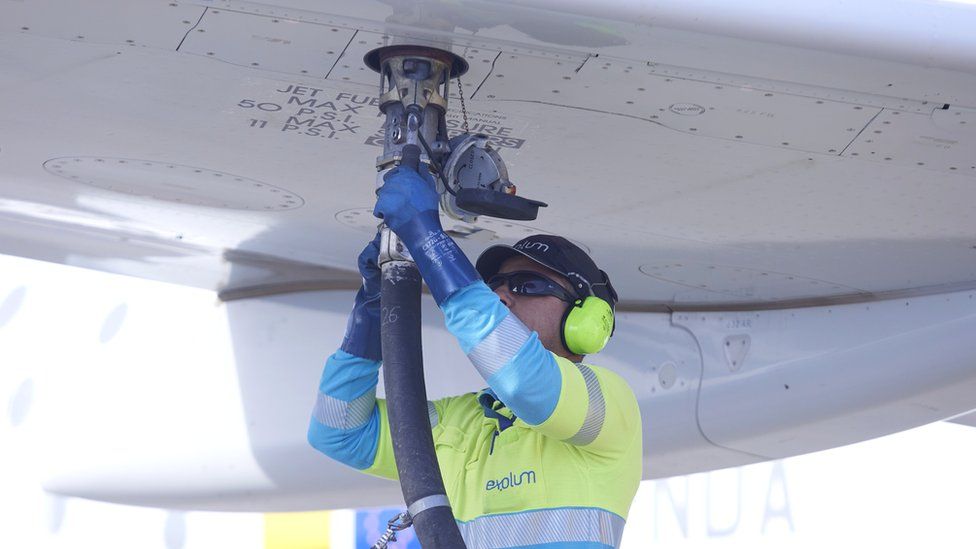-

-
-
Loading

Loading

Heathrow Airport is a hub for thousands of daily flights and requires an enormous amount of jet fuel to keep operations running smoothly. The airport currently relies on around 20 million liters of jet fuel every day, which is equivalent to filling up a car approximately 400,000 times. This fuel is delivered to the airport through pipelines from refineries and stored in fuel farms. Matt Prescott, head of carbon strategy at Heathrow, explains that the volume of fuel passing through the airport is staggering, accounting for roughly half of the UK's total jet fuel requirement. While Heathrow itself does not purchase or sell fuel, it must ensure that the necessary infrastructure is in place for the airlines and fuel suppliers. However, airports worldwide are reevaluating their fuel sources due to ambitious carbon reduction goals set by governments and industry initiatives. The UK aims to achieve net-zero carbon emissions in the aviation sector by 2040, while the US and the European Union have similar targets for later years. To reach these goals, alternative fuels to traditional jet fuel will be essential. One such alternative is Sustainable Aviation Fuel (SAF), which is produced from non-fossil fuel sources. Some airlines are already incorporating SAF into their fuel blend. Unlike traditional jet fuel, SAF can be easily supplied to airports through existing pipelines. However, doubts remain about whether SAF can be produced affordably and in sufficient quantities to meet the demands of the industry. Hydrogen is another promising option as it does not produce CO2 emissions when used as fuel. However, liquid hydrogen, which is necessary for aviation purposes, poses significant challenges due to its extremely low temperature and the need for extra insulation. Air Liquide, a French company with experience in supplying cryogenic hydrogen for rockets, is exploring the potential of hydrogen in aviation in collaboration with Airbus and Group ADP. While hydrogen planes hold promise for fast refueling times, the installation of necessary storage and distribution infrastructure at airports will come with a high price tag. Universal Hydrogen, a startup, proposes a unique solution that involves handling hydrogen away from airports and delivering it in special tanks called modules. These modules can be directly fitted into aircraft for use, eliminating the need for additional infrastructure. The use of hydrogen as a mainstream aviation fuel is still in early stages of development. There are challenges in terms of storage limitations, passenger space, and availability of environmentally-friendly hydrogen. The path forward for the aviation industry in achieving net-zero emissions is not yet clear, and hydrogen-powered aircraft implementation may still be far off.